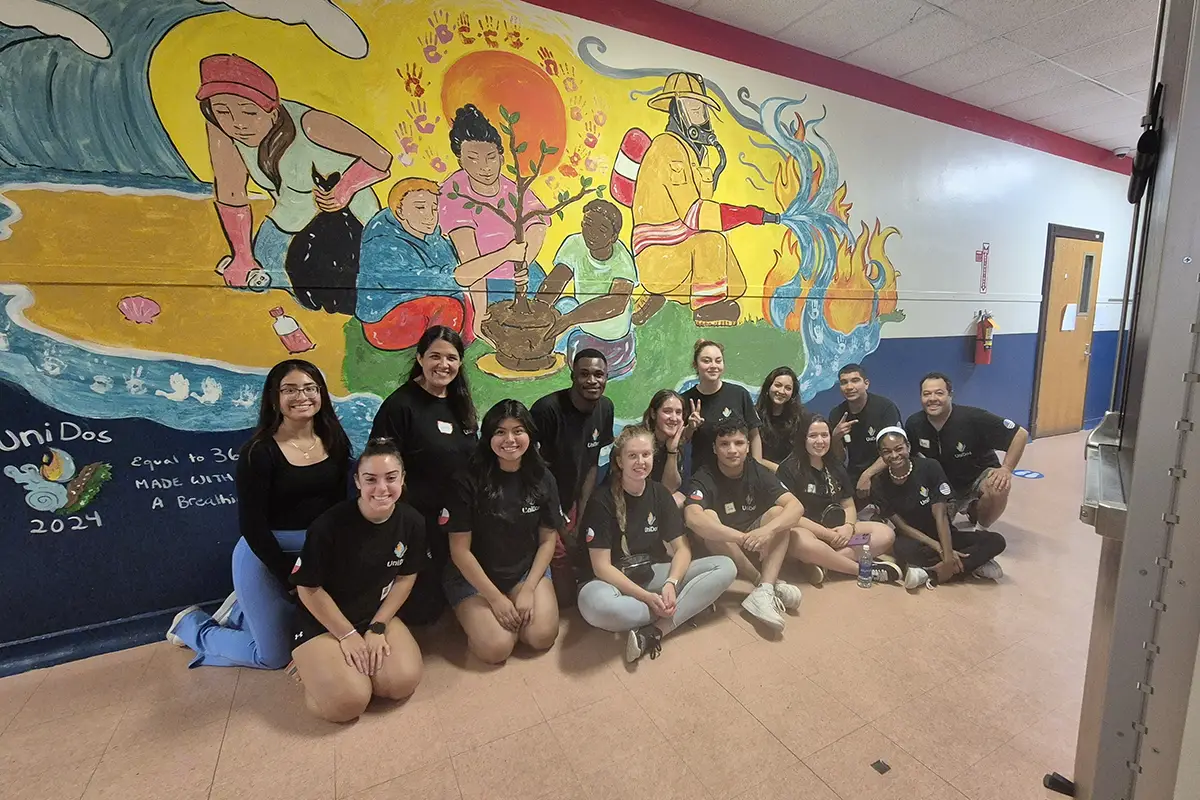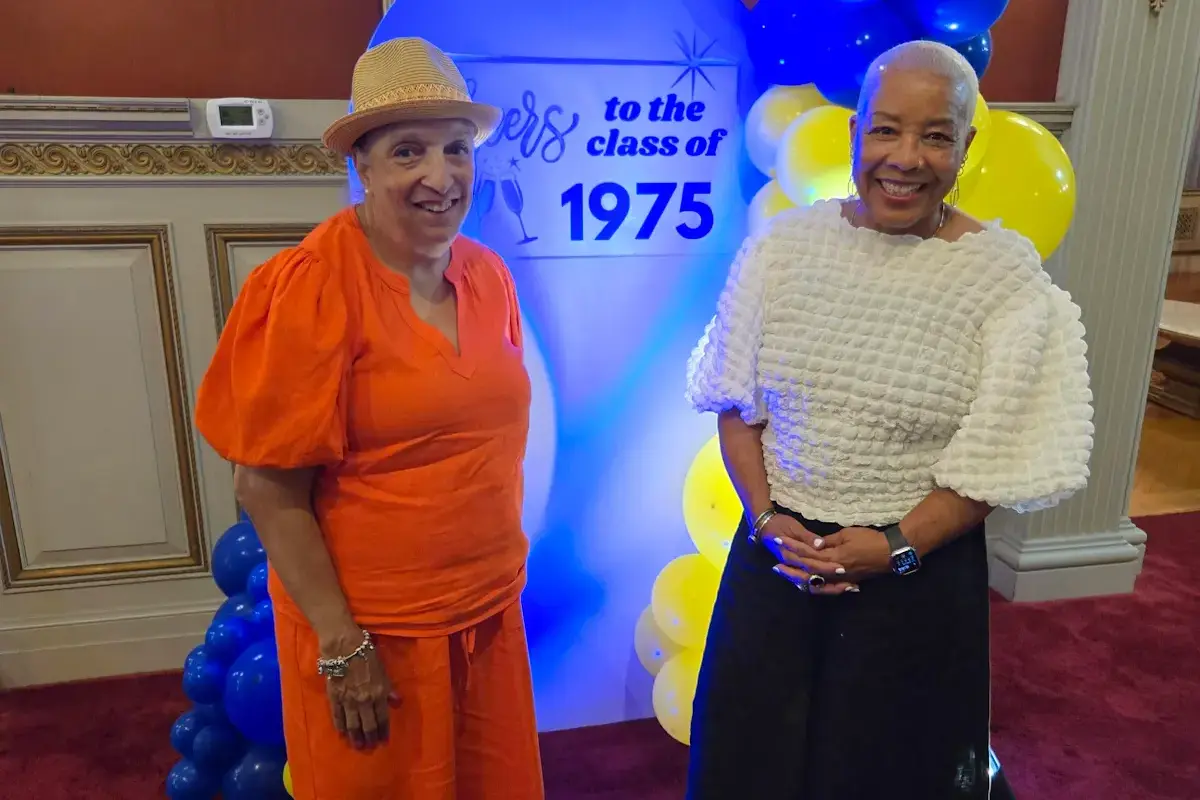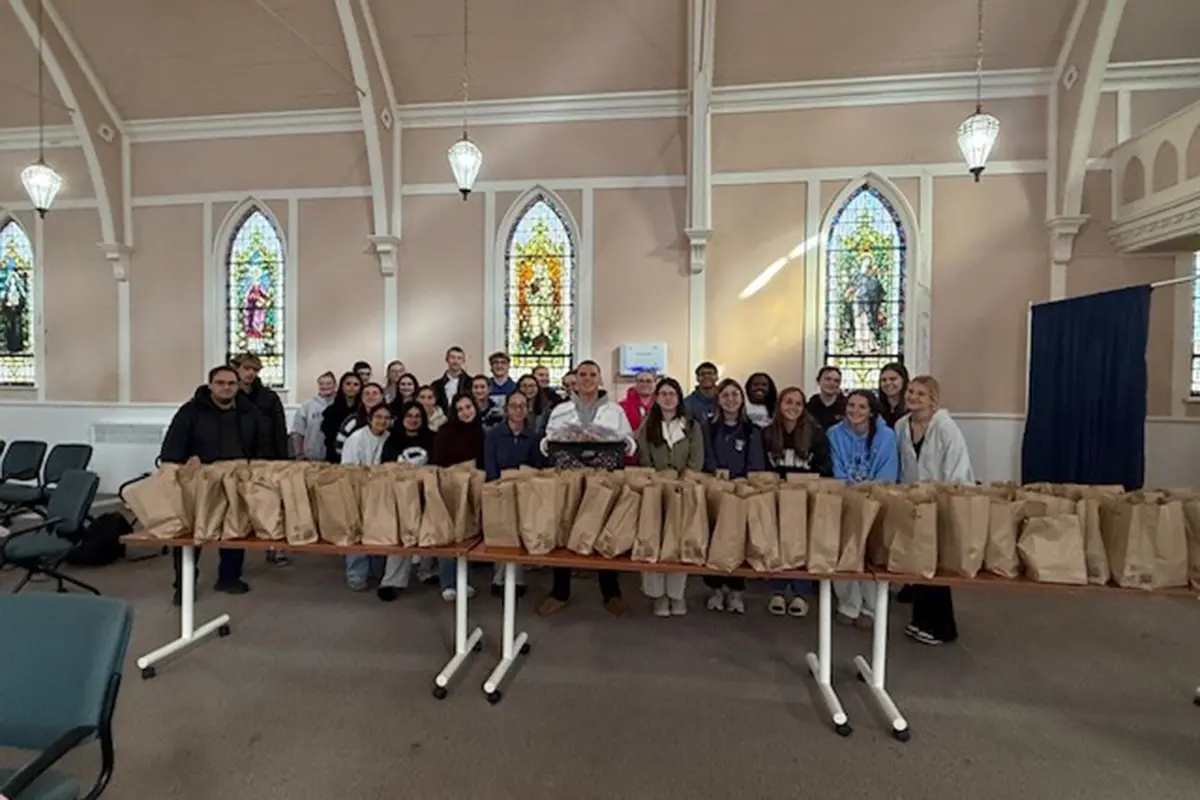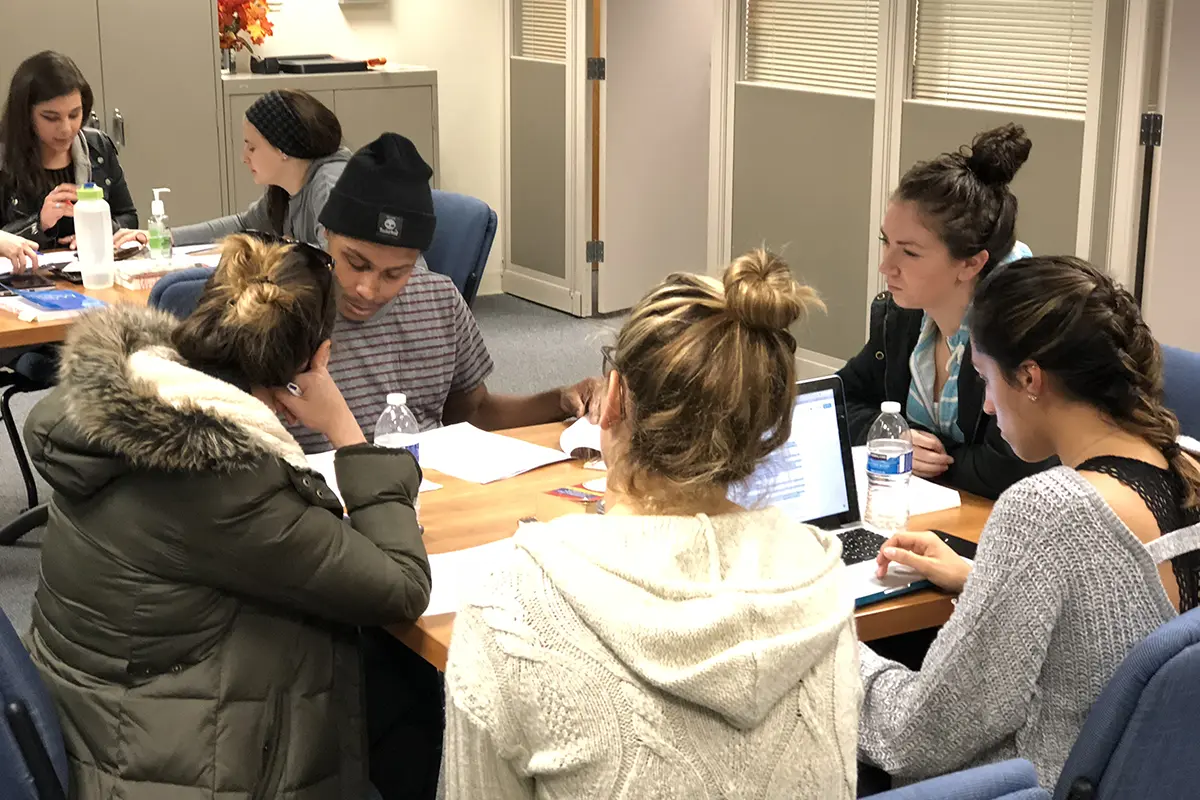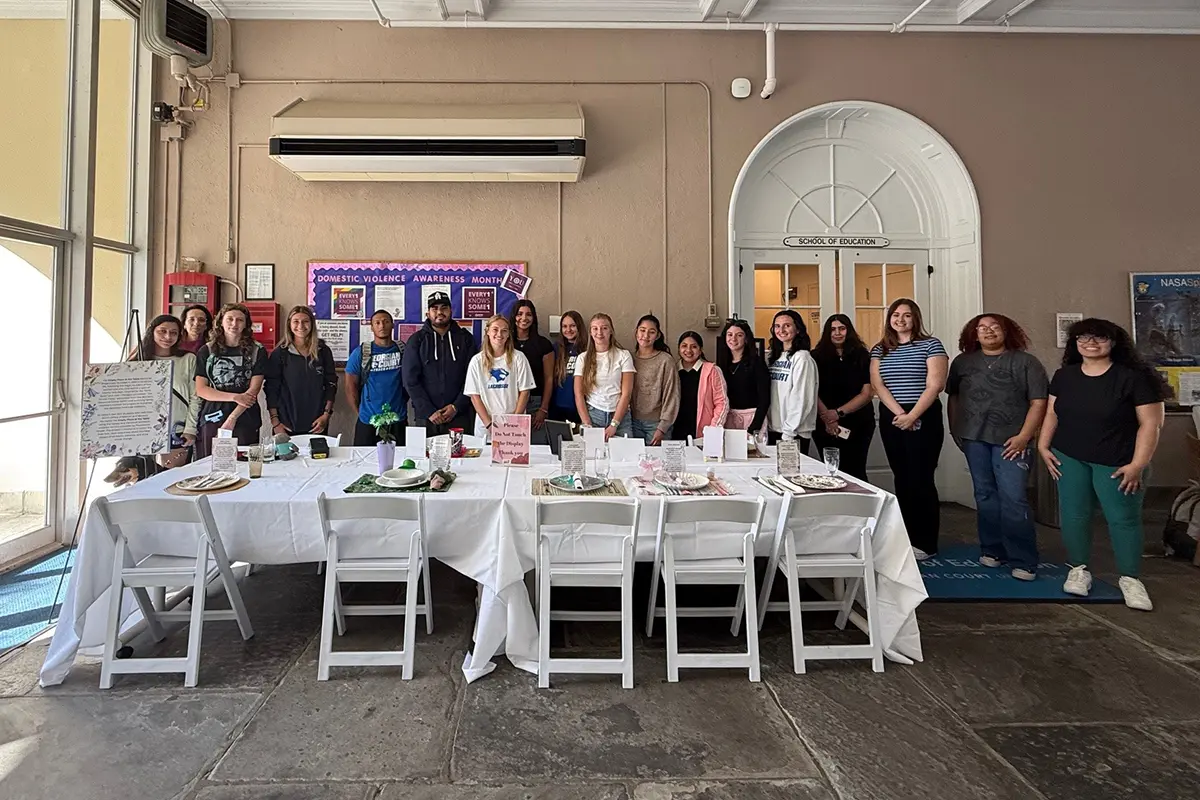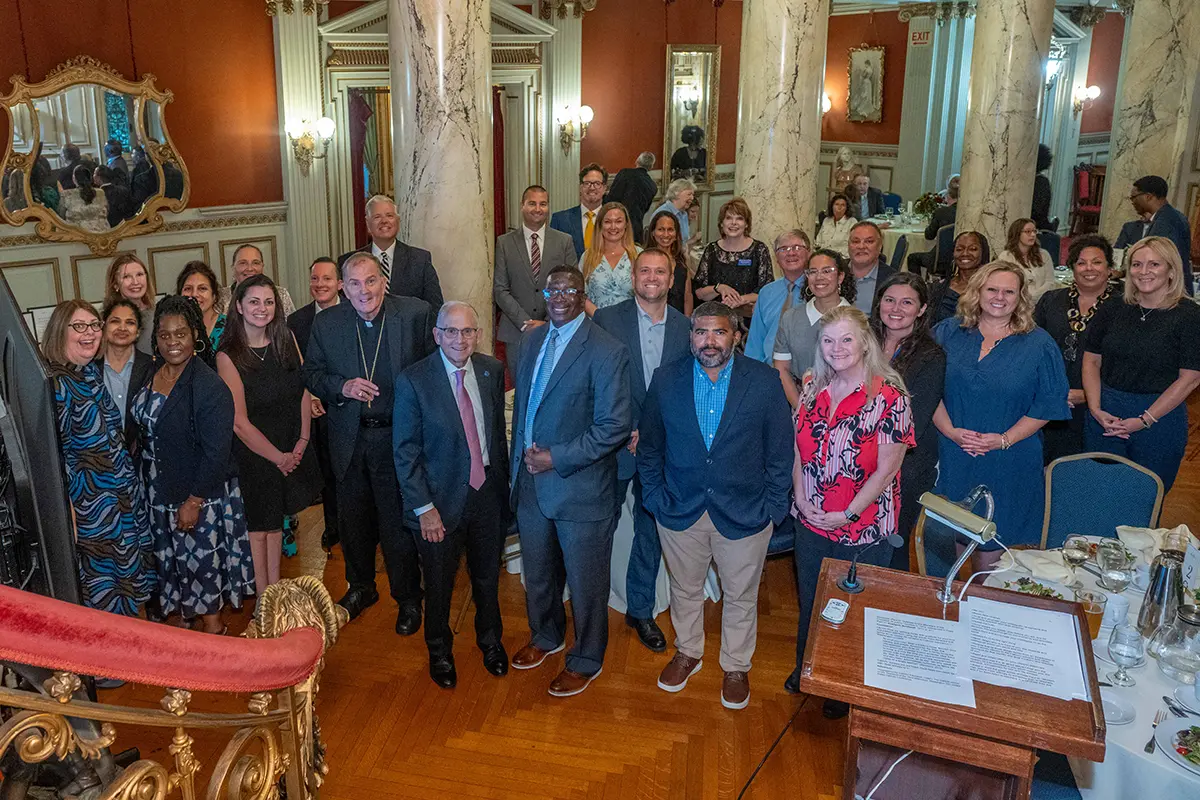Estimated reading time: 6 minutes
The coastal city of Quintero, Chile, was once known as a beautiful beach city perfect for a summer holiday. Today, Quintero is known as a “sacrifice zone.” The area hosts over 20 industrial facilities that deposit pollutants and contaminants into the environment. Chile is home to five sacrifice zones, the phrase coined by a lack of regulations that has led to extreme pollution levels and environmental damage that sacrifice human health and the environment for economic gain.
There is no simple solution to cleaning up these zones, but one way to make a difference is to educate the younger generation and urge them to take action. Earlier this year, Georgian Court and Universidad Viña del Mar in Chile collaborated to create “UniDos: Climate Education Initiative” to provide local and global climate education.
The program is one of multiple climate action exchange programs to receive a 100k Strong in the Americas award. The grant recognizes partnerships between higher education institutions in the United States and Argentina, Chile, Paraguay, and Uruguay. Each grant-winning team received $50,000 to expand climate-focused student exchange programs.
The initiative included over a dozen Georgian Court and UVM students. In July, the students studied abroad in their respective countries, expanding their understanding of the culture and context of their exchange partner. The students participated in collaborative virtual courses that covered the public health effects of sea and beach pollution, air pollution, and wildfires—climate issues that affect communities worldwide. The students also collaborated to design workshops and interactive activities for the camp program to raise awareness and teach young people about climate and environmental issues. The program hosted two camps, one in Quintero, Chile, the other in Lakewood, NJ, each educating roughly 50 children.
“This camp was something we created out of our own vision and creativity. We came up with the idea of doing a camp to extend climate education to local youth,” said Laura Dunn Grodewald, Director of Global Education Programs at Georgian Court. The universities hosted the first camp in Chile and worked with children in Quintero, roughly one hour north of Universidad Viña del Mar. The college students had the experience to learn about life within the sacrifice zone and to educate the Chilean children about the climate and the issues faced worldwide and in their city.
“I taught the children about the importance of insects. When people think about insects, they usually think they’re bothersome, but I wanted to teach the kids about the importance of insects in the environment and the food chain,” said Marianna Fernandez Urrutia, Chair of International Projects and an alum of Universidad Viña del Mar. Other workshops explored air quality and water contamination.
“It was a very gratifying experience to help the children,” exclaimed Aldo Rodríguez, a law student at Universidad Viña del Mar. “We are trying to make a difference. I think the kids will take more responsibility now at home with what they learned, and it feels good to know that. It’s the small things that can change the world.”
During camp, the children learned how to make changes at home to help the environment, such as composting, turning off lights and faucets when not needed, and recycling.
“It’s one the most polluted places in the world. The air quality in Quintero is contaminated with pollutants that can lead to ailments in the people living in the region,” explained Grodewald. “At one point, one of our college students asked the children, ‘How many of you have gone to the hospital because of the air quality?’ and all of the students raised their hands. One girl even said, ‘I vomited six times’ – they are vomiting blood.”
“It was an eye-opening experience,” said Emma Gildea of Manahawkin, NJ, a rising senior at GCU. “When we went to the sacrifice zone and saw what those kids go through, it was shocking. We even felt the effects ourselves since we went on a day of high contamination,” she added. “We asked the kids to draw a picture of what pollutes the environment, and they all drew the smoke stacks from the factories. It’s heart-wrenching to see what’s going on—these kids are only around 10 years old. I wasn’t thinking of those things when I was their age, you know?”
In Chile, the students conducted a beach cleanup at Playa Las Cañitas with the children and painted a mural, which stands as a lasting reminder of the climate and how people must work together to preserve our planet. The mural also serves as a decontamination machine using a new Chilean product, Photio, a paint additive that mimics the process of photosynthesis, essentially ‘breathing’ oxygen back into the air by absorbing carbon dioxide.
In Lakewood, NJ, a similar mural containing Photio now resides at Clifton Ave Elementary School. Emily Donovan, a modern-expressionist artist who earned a fine arts degree from GCU in 2015, designed the mural. “They were looking for something that represented issues not only around the world but also some issues we see in New Jersey. It shows beach cleanups, deforestation from over-construction, and forest fires, which is a sort of relatively new issue for us, it seems. It also depicts the four elements—so fire meeting water and the earth and air,” said Donovan. “One of the cool things about this mural is some of the paint is made of dirt, clay, berries, and seashells. It’s completely eco-friendly, which is really cool.”
The children attending the camp in Lakewood also learned about the climate through workshops and completed a lake cleanup at Lake Carasaljo. “It gives the children the empowerment to make a difference in the future and have a lasting impact by doing this mural,” added Grodewald.
“This is our Earth; we only have one. I’ll keep screaming it until somebody listens,” remarked Emily Donovan. “This is something that affects everybody. Every generation is affected; it’s just so important because these kids need a future. We need to protect this Earth for them.”
Both Georgian Court and Universidad Viña del Mar hope to engage in future climate initiatives to educate the youth and assist in the movement to protect the planet’s climate.
To learn more about the exchange program in Chile and other study abroad programs at GCU, please visit the GCU Study Abroad Blog: https://study-abroad-blog.georgian.edu/category/chile-2024/
Local Chile news articles about the program (in Spanish):
The core funding support for Unidos: Chile Exchange Program & Climate Education Initiative is through the 100,000 Strong in the Americas Innovation Fund and its partner, CAF: Development Bank of Latin America & the Caribbean, along with the Bureau of Western Hemisphere Affairs at U.S. Department of State and U.S. Mission-Chile, as part of the dynamic public-private sector collaboration between WHA/DOS and Partners of the Americas, working with companies, foundations, regional government entities, and academic networks in the United States and the rest of the Western Hemisphere to create innovative, sustainable partnerships that provide access to new models of academic exchange and training programs in the Americas. Learn more and join the Innovation Network at https://www.100kstrongamericas.org/.

